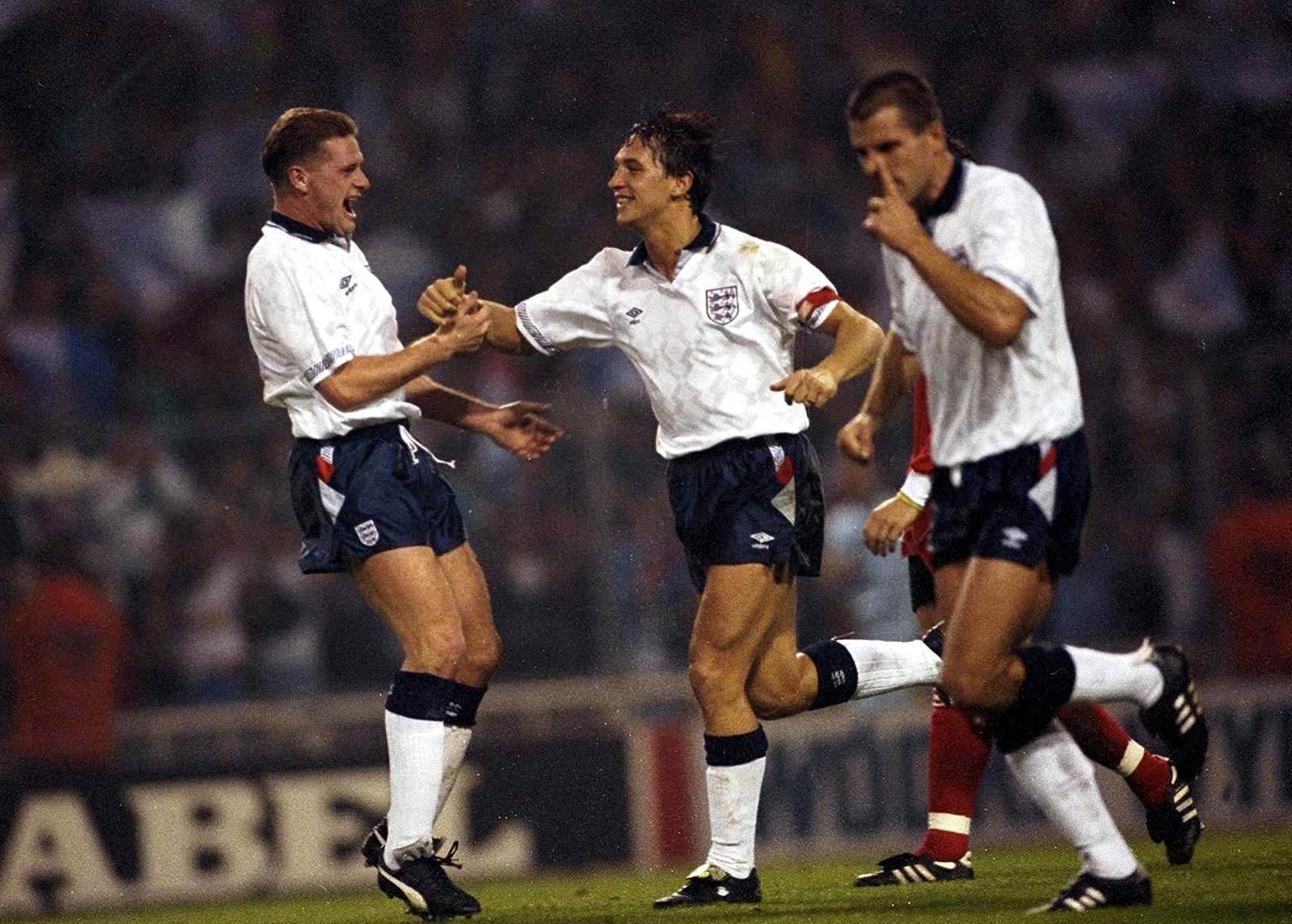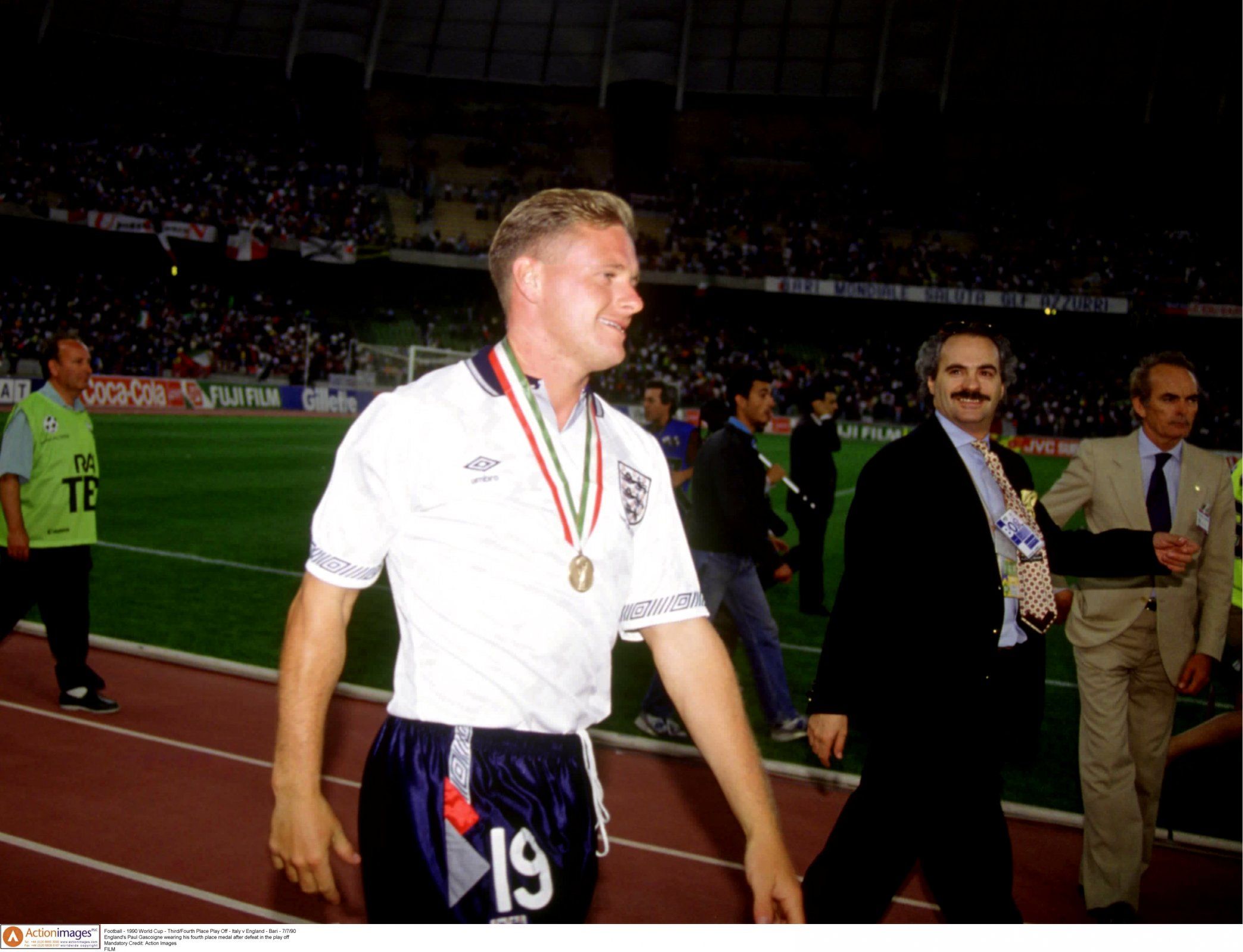On Wednesday evening, England will take to the field in Moscow for their first World Cup semi-final since 1990.
The ghosts of Waddle and Pearce, Robson and Gascoigne are Mario Kart style marker for this team, and if they manage to go one better than the Italia 90 vintage, only the team of 66 will stand in greater esteem. At least for now.
The similarities to this summer and one 28 years ago are much more obvious, though. That was a time when English football - and the country itself - was at a low ebb, only to be taken to the brink of euphoria by a team capable of uniting the prevailing discord of the time.
It’s also arguably the last World Cup when England caught a genuine bit of luck, playing Cameroon and then Belgium in the earlier knockout stages of the competition in order to make it to a semi-final.
Despite the similarities to this year’s competition, the context of 1990 could not be more different.
English football clubs had been banned from European competition after the Heysel Stadium disaster in 1985, and football was in the process of being sanitised - over the next few years, the Premier League and Sky TV would create a ‘whole new ball game’, by which they meant transforming the English football into a money-making show pony, taking it out of the hands of the working classes. Football became family-friendly - marketed to those with the most money to pay for it.
By now, the idea that there was a transformation at all seems too long ago to remember. The English top flight is no longer a footballing backwater filled with Home Nation players and drained of its best talent, who increasingly looked overseas (or to Scotland) for opportunities to play in European competition. It hasn’t been for decades. These days, it is the most cosmopolitan league in the world and shows no signs of getting less so: indeed, that is probably to the detriment of its own national team.
By the time the 1998 World Cup had arrived, English football was starting to be obviously different to what had gone before. David Beckham’s red card is perhaps the biggest stand-out moment for England at that tournament and the negative reaction the Manchester United player received after that game was gruesome, his fame was the catalyst for a reaction symptomatic of the disconnect emerging between players and fans.
1990 was a very different place for an England footballer.
The names roll off the tongue: David Platt, Gary Lineker and, above all else, Gazza... tears.
If Beckham was the first superstar footballer born to the Premier League, Gascoigne was the poster boy for the old way.
There’s no point eulogising about his natural footballing gifts, but his salt-of-the-earth character lent him perfectly to the mood of the country. Those following on at home and hoping to see their team succeed love a player like Gazza, who was both relatable and entertaining - in every sense of the word.
When he cried, the country cried with him, when he smiled six years later against Scotland at Wembley, they smiled with him, too.
Today’s footballers can arguably never reach those levels of relatability, but strangely enough they aren’t too far away. Social media has seen to that. They capture the zeitgeist and are able to present their personalities to the world, just as Gascoigne and others were able to do in 1990.
In the last 28 years, English football has changed so much that it is unrecognisable. From the teams, the players and the stadiums to even the types of fans.
From one dystopian picture of English football being held hostage by hooligans and ransomed by Thatcherism to another, nearly three decades later, where the game is being cut up for corporations. But once again, England have a team that cuts through all of that to capture the mood of the time.
And in that, these two sides are not that different at all.
[brid autoplay="true" video="267843" player="12034" title="Five crazy stats from the World Cup last 16"]


